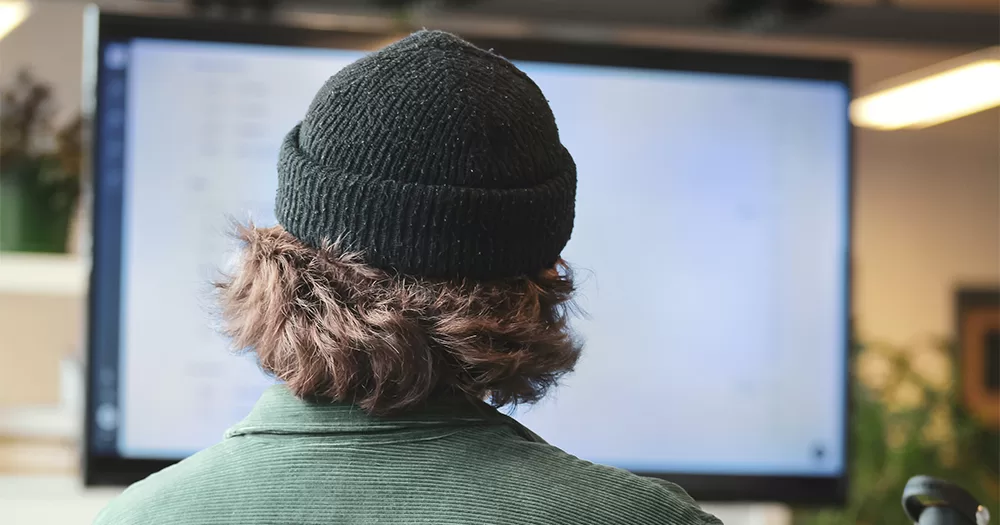Since its inception, reality television has been regarded by many as fluff TV, disposable content, a junk watch, but for some queer people it has also been a lifeline when regular programming has excluded LGBTQ+ stories.
It was my second year of high school when I anxiously sat down on the couch on a December night to watch the season finale of Survivor: David vs. Goliath with my family. This wasn’t an unusual occurrence for our household, we’d been watching Survivor together for years; cheering on our favourites and rooting for the downfall of players we were against. What made this finale so different from others was that an openly queer contestant had a chance to take home the crown.
I had seen all seasons of Survivor at this point. The premise of the show was simple: strangers from different walks of life were stranded on an island, struggling to survive while periodically voting each other out. In the end, the finalists face a jury of the very peers they eliminated to try and convince them they are the player deserving of the million-dollar prize.
This particular season was important because Mike White, an openly queer man, had made it to finale night. Yes, the Mike White, creator of The White Lotus series and School of Rock. He ended up finishing in second place. While Mike didn’t win, I was simply happy to be able to look at a show I loved and see someone like me.
Growing up in small-town rural America, I didn’t have many places to look when it came to positive representations of queerness. I had recently come out to a few of my closer friends, but was still a little over a year away from telling my parents and sister. I yearned for people to understand what my life was like, but at the same time didn’t want to tell people. This is where Survivor came in.
binging the mike white season of survivor this week and it’s bellissima pic.twitter.com/Dqo4qaVUt1
— hunter harris (@hunteryharris) December 29, 2022
Subconsciously, the reality TV show was a way to express my queer identity to my family and the friends I wasn’t open about my sexuality with – by rooting for queer players such as Mike. It allowed for small steps toward the self-acceptance I needed in order to share myself with my family.
Throughout high school, I joined many online spaces related to the show. From discussing every season and every player, to playing online versions of the game myself, I found that many fans of the show, and reality television at large, were looking for the same queer belonging I was.
It was and is exciting, to see how something as silly as reality TV can bring queer people from all walks of life across the world together over a shared interest and, what we would later find, shared experiences. I still keep in touch with some of those people today. One person in this small corner of the internet, Carolyn Wiger, ended up competing on the show’s 44th season and finished in third place- the highest-placing openly pansexual competitor.
While I don’t need these spaces, or this show, as much as I did when I was younger – I moved away from home for university in Boston, came out to my family, and was in a much better place mentally – I didn’t realise until later that I do still need this community, just in ways I didn’t understand previously.
“Are you mad at me now?!”
“Yes.”
I will never love another castaway the way that I love Carolyn Wiger. She will forever and always be my favorite. Full stop. #Survivor #Survivor44 pic.twitter.com/IJP1YesgMl
— Ryan ? (@suRYvor) May 11, 2023
It was the small realisations. Calling my parents and grandparents from Boston on a Thursday morning to talk about last night’s episode and what we expected to happen next. Bonding with new college friends over the show and watching it together on Wednesday nights. Or, when I got freedom in my writing assignments for classes, taking the time to contact and interview former contestants about their time on the show.
The show was and still is a large part of how I define community. At first, it was a tool for escapism, to watch people comically compete for a monetary prize while simultaneously feeling a connection to contestants who were living the same life I was.
Nowadays, I don’t view it as an escape but instead as a way to build community with my family and friends. I don’t need the validation or representation the show gave me anymore, because now I have the open support of those I surround myself with. Yet on those Wednesday nights during its run, I find myself in front of the television, excited to watch people like me on screen and discuss them with my people off-screen.
This article was originally featured in issue 379 of GCN magazine. You can read the full issue here.
© 2023 GCN (Gay Community News). All rights reserved.
This article was published in the print edition Issue No. 379 (August 1, 2023). Click here to read it now.
Support GCN
GCN is a free, vital resource for Ireland’s LGBTQ+ community since 1988.
GCN is a trading name of National LGBT Federation CLG, a registered charity - Charity Number: 20034580.
GCN relies on the generous support of the community and allies to sustain the crucial work that we do. Producing GCN is costly, and, in an industry which has been hugely impacted by rising costs, we need your support to help sustain and grow this vital resource.
Supporting GCN for as little as €1.99 per month will help us continue our work as Ireland’s free, independent LGBTQ+ media.


comments. Please sign in to comment.